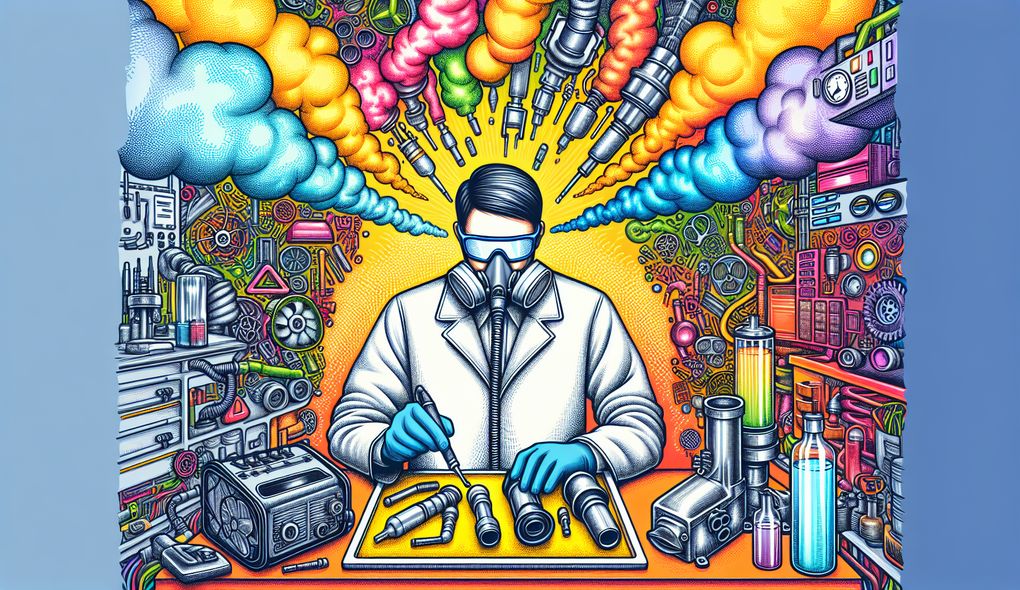How do you approach research and development in the field of emissions control?
SENIOR LEVEL

Sample answer to the question:
In approaching research and development in the field of emissions control, I focus on identifying and understanding the specific emissions challenges faced by different industries. I start by conducting thorough research to gather information on the latest technologies and techniques used in emissions control. This includes reading industry publications, attending conferences, and networking with experts in the field. I then analyze the data collected to develop innovative solutions tailored to each industry's unique requirements. Throughout the process, I collaborate closely with cross-functional teams, such as chemical and environmental engineers, to ensure the effective implementation of emissions control systems. Finally, I stay updated on advancements in emissions control technology and environmental regulations to continuously improve and optimize our strategies.
Here is a more solid answer:
In my approach to research and development in the field of emissions control, I rely on my strong analytical and problem-solving skills to identify the root causes of emissions and develop effective solutions. I leverage my deep knowledge of chemical and environmental engineering principles to design emissions control systems that are environmentally friendly and comply with regulations. I use CAD and simulation software to simulate and optimize the performance of these systems before implementation, ensuring their efficiency and effectiveness. Additionally, I demonstrate strong leadership and project management abilities by leading cross-functional teams in the implementation of emissions control projects, coordinating timelines and resources, and ensuring successful outcomes. I also prioritize clear and concise verbal and written communication to facilitate collaboration with team members and stakeholders. Lastly, I actively contribute to a collaborative team environment by sharing knowledge and expertise, seeking input from others, and fostering a sense of camaraderie and shared goals.
Why is this a more solid answer?
The solid answer expands on the basic answer by providing specific details about the candidate's analytical and problem-solving skills, knowledge of engineering principles, proficiency in CAD and simulation software, and leadership abilities. It also mentions their strong communication skills and ability to work collaboratively in a team environment. However, it could still provide more examples of past projects or experiences that demonstrate these skills and abilities.
An example of a exceptional answer:
My approach to research and development in the field of emissions control combines a systematic and data-driven approach with a creative and innovative mindset. I start by conducting a comprehensive analysis of the emissions sources and their characteristics, using advanced analytical tools and techniques. This allows me to identify the most critical emissions and prioritize them for further research and development. I then collaborate with a multidisciplinary team of experts, including chemists, engineers, and environmental scientists, to develop novel solutions tailored to each specific emissions challenge. Throughout the process, I leverage my deep understanding of chemical and environmental engineering principles to ensure the feasibility and efficiency of these solutions. To validate their effectiveness, I design and conduct rigorous experiments using state-of-the-art emissions monitoring and testing equipment. This empirical approach allows me to gather reliable data and make informed decisions on the optimal design and implementation of emissions control systems. I also actively engage with regulatory bodies to stay up to date with the latest environmental standards and ensure compliance in all aspects of our research and development. Finally, I believe in the power of continuous learning and improvement, and I actively seek opportunities to attend conferences, workshops, and training programs to stay current with advancements in emissions control technology and expand my knowledge and skills.
Why is this an exceptional answer?
The exceptional answer provides a more detailed explanation of the candidate's approach to research and development in the field of emissions control. It highlights their systematic and data-driven approach, as well as their creative and innovative mindset. It also showcases their collaboration with a multidisciplinary team and their use of advanced analytical tools and techniques. The answer further emphasizes their deep understanding of engineering principles and their validation of solutions through rigorous experiments. The candidate also demonstrates their proactive engagement with regulatory bodies and commitment to continuous learning and improvement. Overall, the exceptional answer provides a comprehensive and well-rounded perspective on the candidate's approach to research and development in emissions control.
How to prepare for this question:
- Familiarize yourself with the latest research, technologies, and techniques in emissions control. Stay updated on industry publications, attend conferences, and network with experts in the field.
- Develop strong analytical and problem-solving skills by practicing solving complex engineering problems. Seek opportunities to apply these skills in real-world scenarios.
- Gain proficiency in CAD and simulation software commonly used in emissions control system design. Take online courses or work on projects that involve using these tools.
- Enhance your leadership and project management abilities by taking on leadership roles in engineering projects or participating in project management training programs.
- Improve your verbal and written communication skills by practicing presenting technical concepts to both technical and non-technical audiences. Seek feedback and work on improving clarity and conciseness.
- Demonstrate your ability to work collaboratively in a team environment by actively participating in group projects or joining professional organizations that promote teamwork and collaboration.
What are interviewers evaluating with this question?
- Analytical and problem-solving skills
- Knowledge of chemical and environmental engineering principles
- Proficiency in using CAD and simulation software for system design
- Strong leadership and project management abilities
- Verbal and written communication skills
- Ability to work collaboratively in a team environment

